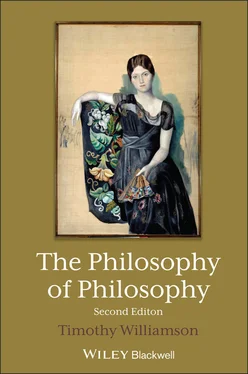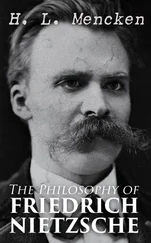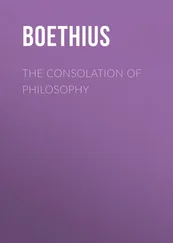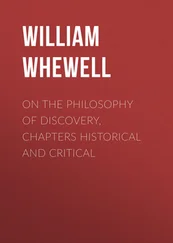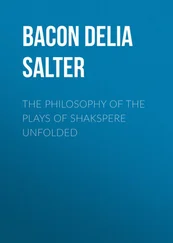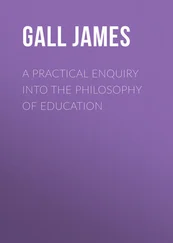How can a sentence which comes as close as “Vixens are female foxes” does to being a definition of “vixen” be about vixens rather than about the word “vixen”? Uttering it in response to the question “What does ‘vixen’ mean?” normally enables the questioner to work out the answer to the question, by pragmatic reasoning, even though the literal meaning of the sentence does not directly answer the question, just as does uttering “That is a gnu” while pointing at one in answer to the question “What does ‘gnu’ mean?.” If core philosophical truths are analytic, they may exhibit significant features of words or concepts without describing them.
Does the conception of philosophical truths as analytic or conceptual vindicate a form of the linguistic or conceptual turn without misrepresenting the subject matter of philosophy as itself linguistic or conceptual? The case study in the previous chapter gave no support to such a conjecture. Nevertheless, let us examine the matter more systematically.
Many philosophically relevant truths are clearly not conceptual truths in any useful sense. For instance, in arguing against subjective idealism, a defender of common sense metaphysics says that there was a solar system millions of years before there was sentient life. Similarly, a defender of common sense epistemology says that he knows that he has hands; that he knows that he has hands is no conceptual truth, for it is consistent with all conceptual truths that he lost them in a nasty accident. Some philosophers of time argue that not only the present exists by appeal to Special Relativity. Philosophers of mind and language dispute whether there is a language of thought; whatever the answer, it is no conceptual truth. Naturalists and anti-naturalists dispute whether there is only what there is in space and time; again, the answer is unlikely to be a conceptual truth. Moral and political philosophers and philosophers of art appeal to empirically discovered human cognitive limitations, and so on. Such philosophical arguments cannot be dismissed on general methodological grounds. One must engage with them on their merits, in the normal way of philosophy.
Despite such examples, philosophy may be thought to have a central core of truths which are all conceptual; perhaps the rest of philosophy counts as such through its relation to the central core. Let us charitably read this restriction into the appeal to analyticity or conceptual truth in the epistemology of philosophy.
Notoriously, the idea of analyticity has been under a cloud ever since Quine argued that “a boundary between analytic and synthetic statements simply has not been drawn” (1951: 34). Nevertheless, the idea is still active in contemporary philosophy, often under the less provocative guise of “conceptual truth.” The terms “analytic” and “conceptual” will henceforth be used interchangeably.
Quine’s arguments are generally found much less compelling than they once appeared. Although he may succeed in showing that “analytic” is caught in a circle with other semantic terms, such as “synonymous,” he does not adequately motivate his jump from that point to the conclusion that the terms in the circle all lack scientific respectability, as opposed to the contrary conclusion that they all have it. Given any science, someone may insist that it define its terms, and the terms used to define them, and so on until it is driven round in a circle. By itself, that hardly demonstrates the illegitimacy of the science. Every discipline must use undefined terms somewhere or other. “Two Dogmas of Empiricism” does not explain why we should regard the undefined terms of semantics as worse off than the undefined terms of other disciplines, except by dogmatic charges of unclarity. After all, semantics is now a thriving branch of empirical linguistics. It is not to be trashed without very good reason. 2
Some terms may be so unclear by ordinary working standards that no circle of definitions will render them scientifically useful. But semantic terms are not like that. By ordinary working standards, the word “synonymous” is quite clear enough to be useful. Although it is not perfectly precise – surely it has borderline cases – its degree of vagueness seems no worse than that of undefined terms in many other sciences. When clarification is needed in some specific respect, it can be achieved by stipulation or otherwise, as elsewhere in science. Indeed, few contemporary philosophers feel special qualms in using the term “synonymous.” Thus any objection they have to “analytic” can hardly be based on Quine”s arguments, since his only objection to defining “analytic” in terms of “synonymous” is to the use of “synonymous” (1951: 24, 35).
The feeling remains that “analytic,” unlike “synonymous,” carries obsolescent philosophical baggage. For “analytic,” unlike “synonymous,” was once a central term in philosophical theorizing, notably in the work of logical positivists, such as Carnap, and of postwar linguistic philosophers, such as Strawson. The reason why it cannot recover that position lies not in Quine’s critique, which no longer seems compelling, but rather in Kripke”s widely accepted clarification of the differences between analyticity, apriority and necessity. Kripke did not deny that there is a boundary between the analytic and the synthetic; he merely distinguished it from other boundaries, such as the epistemological boundary between the a priori and the a posteriori and the metaphysical boundary between the necessary and the contingent (Kripke 1980: 39). He stipulated that “analytic” entails both “ a priori ” and “necessary.” Since he argued that neither of “ a priori ” and “necessary” entails the other, he was committed to denying that either of them entails “analytic” (by the transitivity of entailment). 3Thus “analytic” does neither the purely epistemological work of “ a priori ” nor the purely metaphysical work of “necessary.” Its current role inevitably looks less central than the one it occupied when “ a priori ” and “necessary” were treated as pretty much interchangeable and “analytic” was taken to do the work of both. But that does not yet imply that no work remains for it to do.
If we try to sort sentences as “analytic” or “synthetic” in the manner of chicken-sexers, we can usually achieve a rough consensus. Of course borderline cases will occur, but so they do for virtually every distinction worth making: perfect precision is an unreasonable demand. The issue is what theoretical significance, if any, attaches to the rough boundary thus drawn. Even if “analytic” is defined in terms of “synonymous” and other expressions under better control than “analytic,” we should not assume without checking that it has any of the consequences sometimes associated with it. In particular, we should not assume that analytic truths are insubstantial in any further sense.
Nothing in this book challenges the legitimacy of familiar semantic terms such as “synonymous.” They will be used without apology, and they permit various senses of “analytic” to be defined. But none of them makes sense of the idea that analytic truths are less substantial than synthetic ones, or that core philosophical truths are less substantial than the truths of most other disciplines. There is something robust about “Two Dogmas of Empiricism”: insights remain even when its skepticism towards meaning is stripped away.
On some conceptions, analytic sentences are true simply in virtue of their meaning, and analytic thoughts simply in virtue of their constituent concepts. They impose no constraint on the world, not even on that part of it which consists of words and concepts. That is why it is unnecessary to get up out of one’s armchair to investigate whether such a constraint is met. Analytic truths are less substantial than synthetic ones because the latter do impose constraints on the world, which it may or may not meet. This is another way of putting the idea that analytic truths are true in virtue of meaning alone while synthetic truths are true in virtue of a combination of meaning and fact, for if analytic truths did impose constraints on the world, they would be true partly in virtue of the fact that the world met those constraints, and so not true in virtue of meaning alone. Call such conceptions of analyticity metaphysical . Other conceptions dispense with the idea of truth in virtue of meaning, and treat analyticity as a privileged status in respect of knowledge or justification which a sentence or thought has in virtue of the conditions for understanding its constituent words or possessing its constituent concepts. Although the privileged truths impose constraints on the world, the task of checking that they are met is somehow less substantial than for other truths, for those who understand the relevant words or possess the relevant concepts. Call such conceptions of analyticity epistemological . 4
Читать дальше
